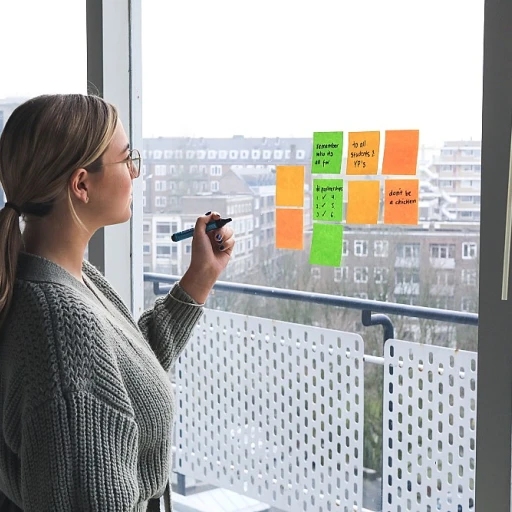Understanding the Skills Gap in Healthcare
Bridging the Divide in Healthcare Skills
As the healthcare industry continues to evolve, the skills gap has become an increasingly pressing issue, impacting both clinical and nonclinical roles. Facilities across the globe are striving to deliver optimal patient care while simultaneously addressing the shortage of adequately skilled staff. Understanding this divide is crucial for effective management and improvement of patient experience and satisfaction.
The need for highly trained support staff within hospitals cannot be overstated. While licensed professionals are critical in providing direct patient care, the efficiency and effectiveness of hospital services often hinge on the capabilities of nonclinical support roles. These roles ensure smooth operation of healthcare administration, utilization management, and patient education activities, all of which are integral to a holistic healthcare system.
Gaps in skills have a profound impact on patient satisfaction and can hinder the patient experience. By focusing on the particular needs of nonclinical roles, hospitals can identify where shortages lie, what skills are in deficit, and how to equip their teams to better support clinical staff, enhancing overall care services. Moreover, this helps in improving systems like utilization review and cross sectional studies that contribute to clinical healthcare.
To better tackle these challenges, organizations should invest in training and development opportunities, ensuring staff is equipped with the necessary skills. Incorporating technological advancements can further enrich the workforce, improving job satisfaction and service quality. These efforts ensure that nonclinical staff plays a pivotal role in providing comprehensive care and support to patients and their families.
For more insights into optimizing your career pursuits and effectively communicating your qualifications, check out this guide on crafting an effective management consulting resume.
The Importance of Nonclinical Support Staff
The Vital Contributions of Nonclinical Support Staff in Healthcare
In the world of healthcare, every component of the system plays a crucial role, and nonclinical support staff are no exception. Their contributions significantly impact the overall patient care experience, even though their work is often behind the scenes. These staff members support the clinical roles by creating a well-organized environment that allows clinical staff to focus on direct patient care.
Nonclinical support staff are vital for numerous reasons:
-
Patient Education and Communication: They facilitate effective communication between patients, their families, and medical staff, greatly influencing patient satisfaction and mental health outcomes.
-
Health and Safety Management: Support staff ensure that the hospital environment remains safe and clean, minimizing risks and enhancing the quality of care.
-
Administrative Efficiency: They manage essential tasks such as scheduling, record keeping, and billing. This efficiency is crucial for smooth healthcare administration and resource utilization management.
-
Service Coordination: Nonclinical roles often involve coordination between various departments, ensuring that patient services are seamlessly integrated and that care coordinators can efficiently organize patient care.
-
Patient Services: By handling logistical challenges, support staff bolster the delivery of patient services, allowing clinical staff to prioritize their medical responsibilities.
The effectiveness of the nonclinical workforce is enhanced by opportunities for training and development, as well as the utilization of technology. For instance, leveraging digital tools can significantly boost their operational capabilities, aligning with the broader goals of hospital management.
Relevant case studies showcase the successful implementation of these strategies, illustrating how nonclinical support staff can elevate the healthcare experience for patients. Understanding their impact not only informs better healthcare delivery but also aids in reducing the skills gap within the sector, ultimately benefiting jobs and patient care.
For more on how programmatic job advertising can help in addressing skills gaps in healthcare and other sectors, explore
unlocking the potential of programmatic job advertising.
Identifying Skills Needed for Nonclinical Roles
Recognizing Critical Competencies for Hospital Support Staff
In acknowledging the significant role that nonclinical support staff play in healthcare, it's imperative to identify the specific skills required for these roles. This step is crucial to optimizing hospital operations and ensuring a seamless patient experience. The healthcare sector is a complex environment demanding various competencies, and understanding these needs helps in placing the right people in the right jobs. Here are some vital skills and competencies needed:
- Effective Communication: Nonclinical staff must often interact directly with patients and their families, conveying important information clearly and empathetically. This is critical in supporting patient satisfaction and enhancing care coordination.
- Organizational Abilities: With healthcare services requiring meticulous planning and execution, nonclinical roles such as administrative staff, care coordinators, and management personnel need robust organizational skills to handle diverse tasks efficiently.
- Problem-Solving Skills: These are essential for addressing the challenges faced in day-to-day operations in a hospital setting. Staff must be proficient in resolving issues that arise, ensuring continuity in patient care and support.
- Technical Proficiency: Familiarity with hospital management systems and electronic health records is beneficial. Leveraging such technology aids in effective documentation, utilization review, and overall healthcare administration.
- Interpersonal Skills: Building relationships with clinical staff and patients' families enhances collaborative efforts and the overall healthcare experience for patients. Ensuring a supportive environment contributes to better mental health outcomes.
To enhance these skills, leveraging technology for skill enhancement is vital. Additional training and development opportunities tailored to these competencies can aid in bridging the skills gap identified in healthcare settings. For more insights on analytical thinking versus critical thinking, crucial for these roles, you can explore this comprehensive analysis from
Understanding the Differences: Analytical Thinking vs. Critical Thinkers.
Training and Development Opportunities
Building Skills for Effective Support Staff
Training and development play a crucial role in bridging the skills gap for nonclinical support staff in healthcare settings. As healthcare systems continue to evolve, the demand for proficient support services is becoming increasingly vital for enhancing patient care and overall patient satisfaction.
One critical area for training is in communication skills. Effective communication can significantly improve interactions with patients and their families, ensuring that patient experience is prioritized. This skill is especially important for roles that involve interaction with clinical staff, care coordinators, and healthcare administration.
Furthermore, training on utilizing technology can greatly enhance the efficiency and effectiveness of hospital support staff. Familiarity with patient education tools and patient satisfaction surveys ensures that staff can adeptly manage patient information and feedback.
Healthcare facilities can offer structured training programs that cover cross-sectional topics, including mental health support, utilization management, and patient care processes. By offering comprehensive resources from platforms like PubMed and Google Scholar, staff can access the latest clinical healthcare research to stay informed and update their knowledge base.
Lastly, mentoring and job-shadowing opportunities with experienced staff provide practical experience that is invaluable for new hires. It is fundamental for management to recognize the unique contribution of nonclinical roles and invest in their continuous professional development to optimize hospital operations and enhance the quality of care services provided.
Leveraging Technology for Skill Enhancement
Enhancing Skills through Technology
In today's rapidly evolving healthcare environment, the integration of technology is indispensable in bridging the skills gap among nonclinical hospital support staff. These roles are vital for efficient hospital management, patient satisfaction, and overall healthcare service delivery. Utilizing technology effectively can significantly enhance the skill sets required in these positions, facilitating better support for clinical staff and patient care.
One way technology enhances skill development is through access to educational resources and training materials. Online platforms like PubMed and Google Scholar provide valuable databases for support staff to stay updated on the latest healthcare practices and patient care strategies. Even nonclinical staff can benefit from understanding medical terminology and healthcare processes, enriching their contribution to the team.
Furthermore, technology allows for the simulation-based training of support staff. Using virtual environments or augmented reality, nonclinical workers can experience scenarios they might encounter in a hospital setting. This method not only improves their problem-solving and management skills but also prepares them for real-life challenges, enhancing the overall patient experience.
E-learning platforms can offer customizable training programs tailored to the diverse needs of hospital departments. This flexibility ensures that staff are not only competent in their current roles but are also prepared for future responsibilities that may arise as healthcare services evolve. Additionally, by leveraging these technological tools, hospitals can conduct cross-sectional analyses to identify potential skills gaps and address them promptly.
Moreover, technology empowers support staff by providing tools for effective job management and utilization review. Platforms that streamline workflow can improve the efficiency of health care services, enabling nonclinical staff to support licensed staff better and prioritize patient education and satisfaction.
By leveraging these technological advancements, hospitals can ensure that their support staff remain a crucial component of the healthcare team, ultimately leading to improved patient outcomes and optimized hospital operations. As technology continues to evolve, it is imperative for healthcare institutions to embrace these tools, continuously enhancing the capabilities of their nonclinical staff and ensuring a seamless integration of care services.
Case Studies of Successful Utilization
Showcasing Effective Strategies
In the realm of healthcare, successful cases exemplify how hospitals optimize the role of nonclinical support staff through comprehensive utilization management and targeted training programs. In particular, initiatives focusing on cross-sectional service integration and patient education have significantly enhanced patient satisfaction and improved overall patient care.
One exemplary case involved a mid-size hospital implementing a robust program designed to better integrate support staff into the broader healthcare administration framework. This initiative emphasized not only the importance of tailored staff training but also on leveraging technology to facilitate seamless communication between clinical and support teams. Medical and clinical roles were redefined to include coordination with nonclinical staff, ultimately improving both patient care delivery and patient experience.
A review of similar initiatives across various healthcare institutions highlighted the value of providing ongoing education and development opportunities for nonclinical staff. Encouraging participation in mental health workshops, patient care seminars, and job-related training sessions contributed significantly to their professional growth and capacity to provide exceptional patient support services. By fostering a culture of continuous learning, hospitals have been able to solidify the complementary relationship between licensed staff and clinical support workers.
Furthermore, leveraging tools such as utilization review and management software has enabled healthcare organizations to accurately gauge the effectiveness of their nonclinical support staff. These systems help ensure that patient services and care coordinators are optimally utilized, thereby enhancing both operational efficiency and patient-focused care. Integrating these strategies has proven to reduce workload on clinical staff, enabling them to direct more attention towards improving patient outcomes and enhancing patient and families' experiences.
Overall, successful cases in optimizing nonclinical roles underscore the necessity of validating support staff’s impact on healthcare services. By analyzing case studies, healthcare facilities can replicate effective strategies that lead to a well-integrated workforce, ultimately driving better care and enhanced patient satisfaction.














